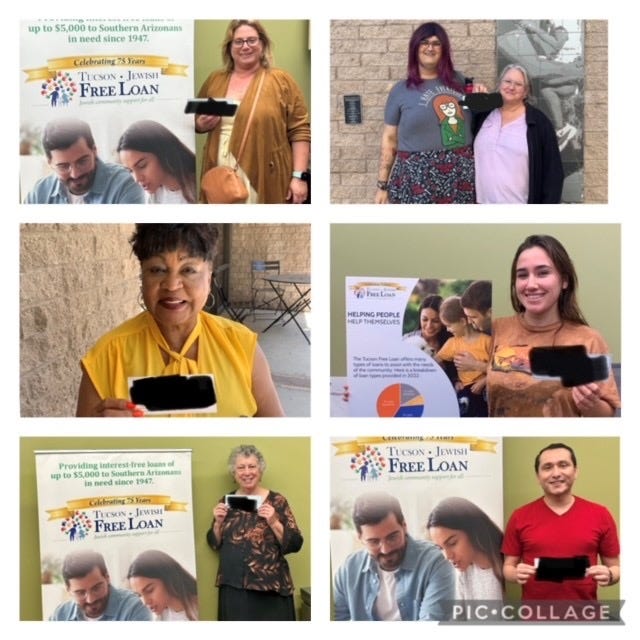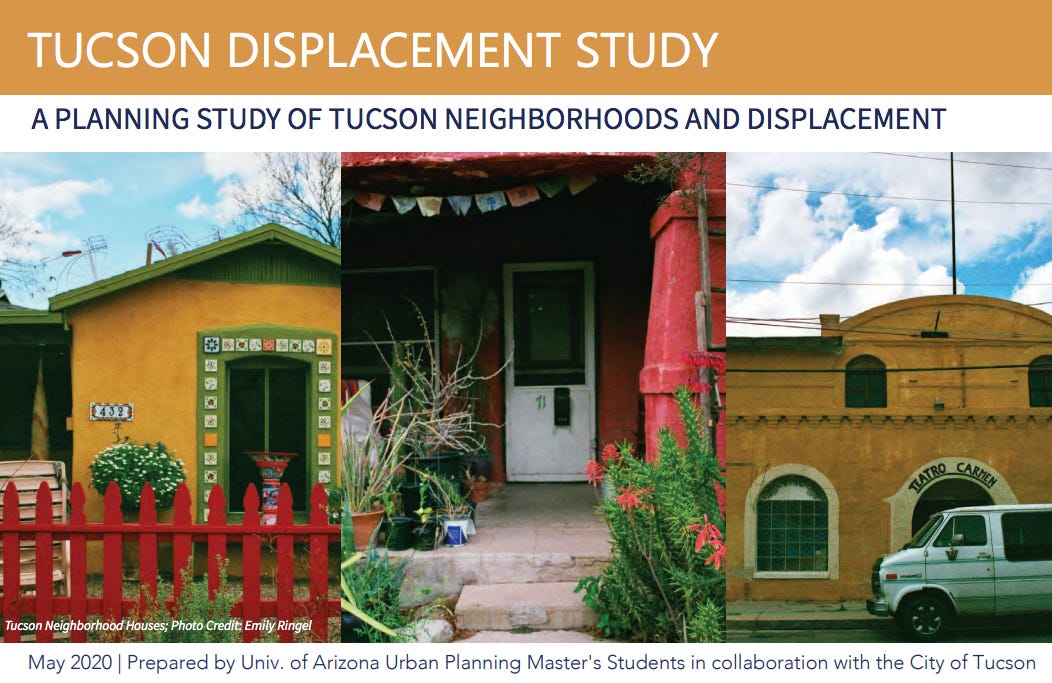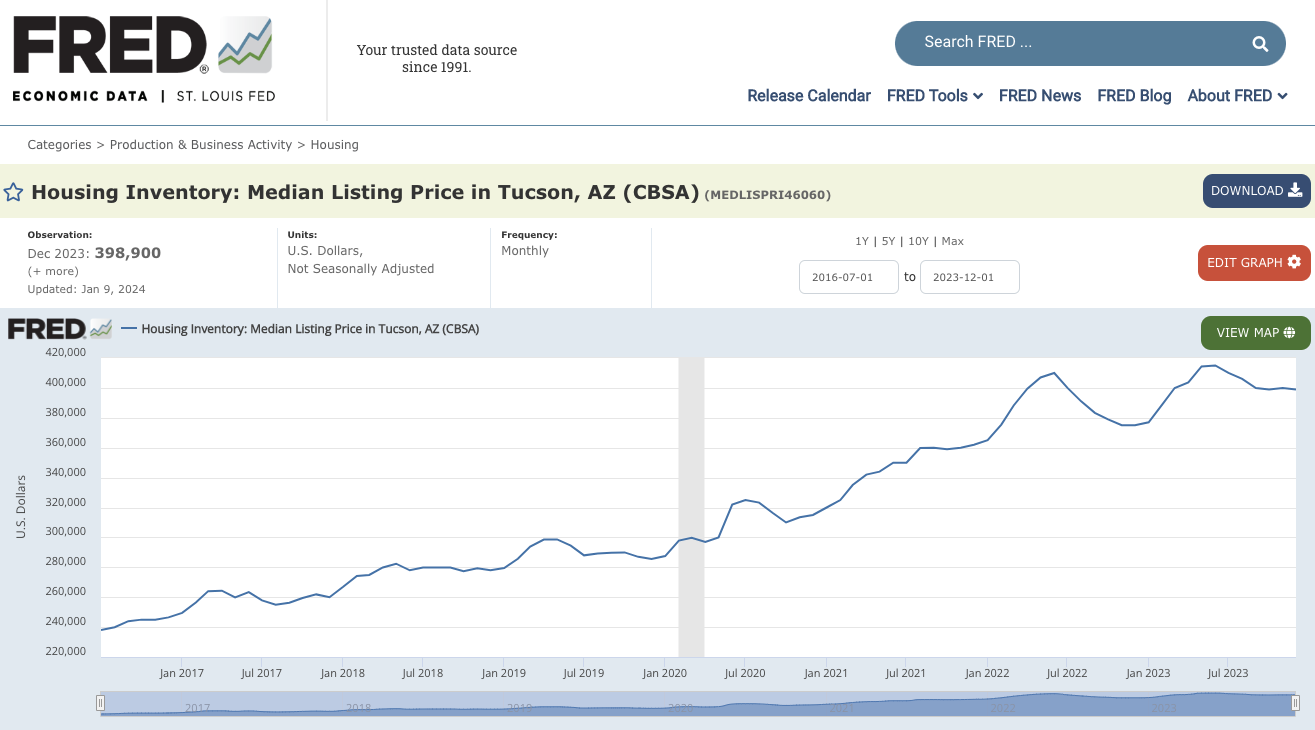The Daily Agenda: Loans help South Tucsonans stay in their homes
Tax liens are the newest challenge ... New loan program aims to help out ... Oro Valley councilman barred from attending meetings.
It was already tough for a lot of people in South Tucson to afford housing. Then they got hit by gentrification, out-of-state flippers, the pandemic, and tax liens.
But local groups are stepping up to give them a fighting chance. Tucson Jewish Free Loan, a non-profit that provides interest-free loans to the Tucson community, is working with Casa Maria Soup Kitchen in South Tucson to prevent community members from being kicked out of their homes because of tax liens.
Those tax liens, which are placed on a property to ensure tax payment, are putting nearly 200 people in the one-square mile that makes up South Tucson at risk of losing their homes, according to South Tucson Council Member and Casa Maria Team Member Roxy Valenzuela.
With only 4,600 people living in South Tucson, that means over 4% of the community is struggling to deal with tax liens.
Casa Maria invested $20,000 in the partnership with Tucson Jewish Free Loan to provide loans for tax liens. However, TJFL also offers loans for a variety of other services, like funeral expenses, utility bills, medical costs and more.

Valenzuela noted that, due to a history of exploitation in the community, South Tucsonans hold on to a deep skepticism of outside organizations. This partnership builds on the relationship that Casa Maria has developed with the South Tucson community in order to increase their trust of TJFL.
According to Valenzuela and Allison Wexler, executive director of Tucson Jewish Free Loan, the process to apply for these loans is meant to be as low-barrier as possible.
“If they come to us, we will walk them through the application process, which is just collecting some general information and verifying their income and their expenses to make sure that they can afford a loan,” Wexler said. “Either Casa Maria is going to pre-approve them or they will come to [TJFL] if it's a non tax-lien loan application.”
Casa Maria serves as the guarantor for any of these tax lien loan applicants, vouching for the people of South Tucson every step of the way, Valenzuela said.
Apart from the $20,000 investment from Casa Maria, TJFL continues to fund loans through a loan recycling process. As people repay their loans, this same loan money is then recycled back into the community.
“When community members make their loan payments, they know that they're making new loans available for their friends and neighbors in their community,” Wexler said. “And so it's a really good model for their community to take care of themselves.”
Previous borrowers with TJFL have expressed a deep gratitude for the group’s services.
"My heart overflows with love for this company. For the support and safety they have surrounded me with, I will be forever grateful. They truly are helping families and expecting nothing in return. They care about people and treat them like they are family. Words ca n not truly express my gratitude. I have more hope in what I face with my child, knowing that they are a resource for us," a single mom from Tucson, who wished to remain anonymous, said in a testimonial.
South Tucson is in dire need of services like this loan assistance program, facing a surge in gentrification that is forcing residents out of their homes at a concerning rate.
Rental rates in South Tucson rose 28.3% from 2010 to 2017, according to a study conducted by the University of Arizona in partnership with the City of Tucson. These spikes in price affect many community members, as over half of all households in South Tucson rent their homes. The study also found that 32.6% of families in the South Tucson area live in poverty.
Valenzuela noted that the COVID-19 pandemic exacerbated these issues in the city.
“A lot of people were just being priced out or being forced to sell their houses because you had all of these flippers preying on them and harassing them to sell their house,” Valenzuela said. “They thought, ‘who knows what's gonna happen right now during the pandemic,’ so people cashed out. Those investors, mostly out of state, basically made a quick buck off of people's desperation.”
The fight against these predatory investors does not stop with Casa Maria’s partnership with TJFL. According to Valenzuela, many community groups are committed to trying to protect the culture and the residents of South Tucson.
La Frontera, a community mental/behavioral health center, and the Primavera Foundation, a local group dedicated to addressing the root causes of poverty and homelessness, work frequently with Casa Maria in service of South Tucson residents.
This partnership with Tucson Jewish Free Loan is in its early stages, but if Casa Maria’s history in South Tucson is any indication, the service these two groups provide could give South Tucsonans a better chance at weathering the effects of gentrification.
Access denied: After he was accused of aggressive behavior, Oro Valley Town Council member Timothy Bohen can’t attend the next two council meetings in person, the Arizona Daily Star’s Charles Borla reports. Of particular concern were two December incidents at the Pusch Ridge Golf Course in which Bohen was allegedly “combative” and “verbally aggressive” with town staff and employees of the golf course’s management firm. Bohen’s access to town buildings is limited to public spaces and he’ll need a police escort to enter any non-public spaces.
Planning for the summer: More than 100 community members gathered earlier this month for Tucson’s first Southern Arizona Heat Planning Summit, a public forum to brainstorm heat resiliency in Southern Arizona, the Arizona Luminaria’s Noor Haghiri writes. Discussion points included communication about environmental threats and education about risks and prevention. Next steps include reviewing current strategies, helping create a city heat preparedness plan and collaborating with community and regional partners.
No good deed: Migrant aid workers were threatened with arrest for driving migrants from the border to the Border Patrol station in Sasabe due to the freezing conditions near the border wall where the migrants were waiting to be picked up by Border Patrol agents, the Star’s Emily Bregel writes. A spokeswoman with the Tucson humanitarian-aid group No More Deaths said border agents wouldn’t respond to calls for help, claiming that their vehicles couldn’t make it over the steep, muddy roads.
Farming for the future: The Ajo Center for Sustainable Agriculture is teaching the next generation of farmers sustainable techniques, Cronkite News’ Lauren Kobley reports. The program lasts between eight and 11 months and trains up to five aspiring farmers in Ajo and on the Tohono O’odham nation per cycle. Apprentices visit local farms, attend workshops and establish their own growing space.
Cataloging cats: Volunteers who monitor trail cameras and collect data on jaguars, ocelots and other species play a vital role in the University of Arizona Wild Cat Research Center’s work, Arizona Sonoran News’ Analeise Mayor writes. Since the center’s launch, citizen scientists have monitored three separate jaguars and collected more than 200 photos and videos of the cats, and also captured more than 70 species including 10 that are threatened or endangered. The center has an archive of 3 million images.
Breaking records: The number of Mexican migrant families at Arizona’s border with Mexico is growing rapidly as violence grips states like Guerrero, Arizona Public Media’s Danyelle Khmara reports. In the Tucson Sector, the number of family members crossing the border grew from 8,500 in 2022 to more than 120,000 in 2023. A Migration Policy Institute spokesman said that many of the families will eventually be removed from the country.
$398,900: The median price for a house in Tucson in December 2023, according to data tracked by the Federal Reserve Bank of St. Louis.











Casa Maria walks the walk. I learned CM stays true to local needs during my time with the Pima County Interfaith Council. Hope for more articles like this. And visit my substack here: frankpierson.substack.com